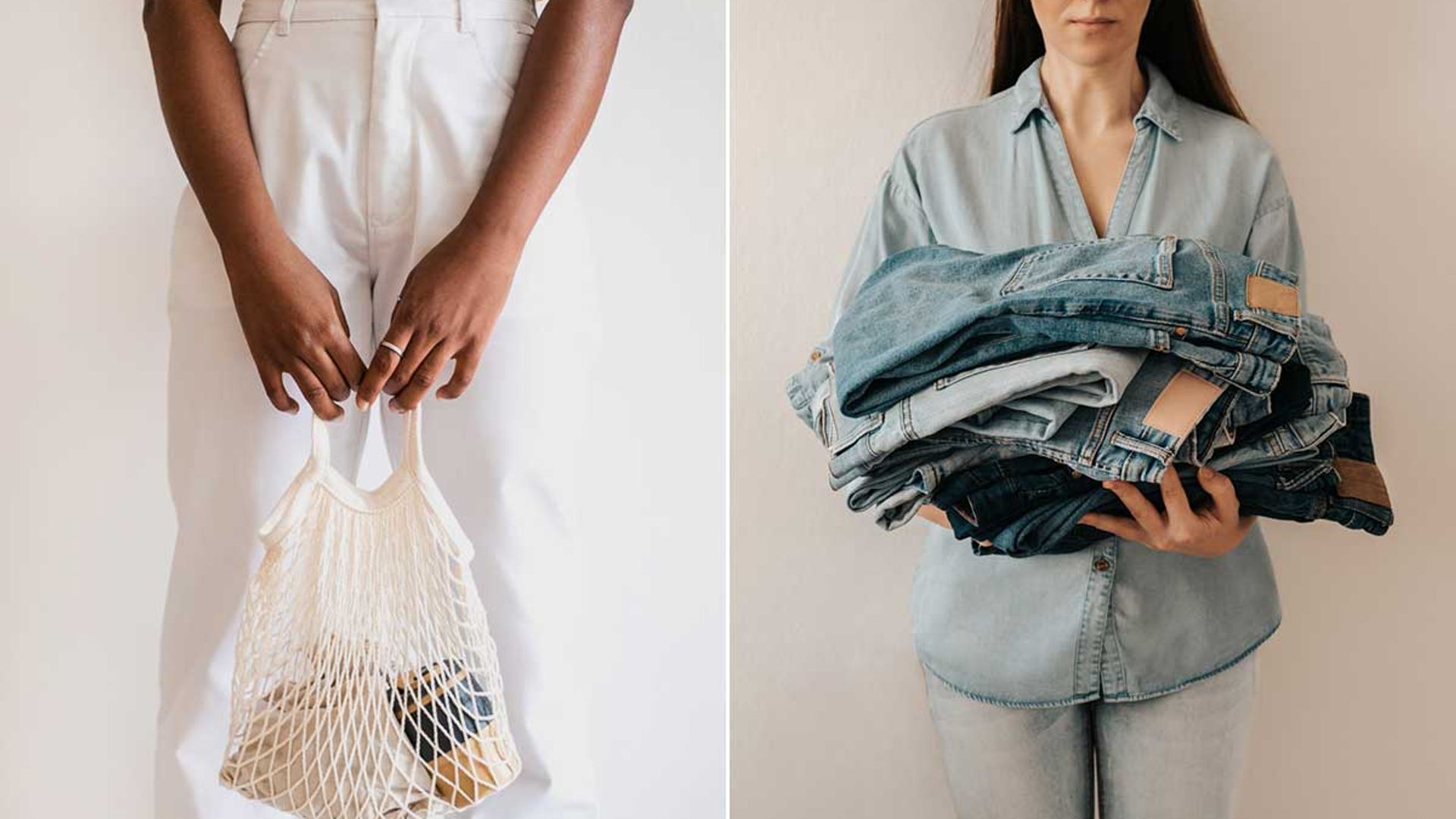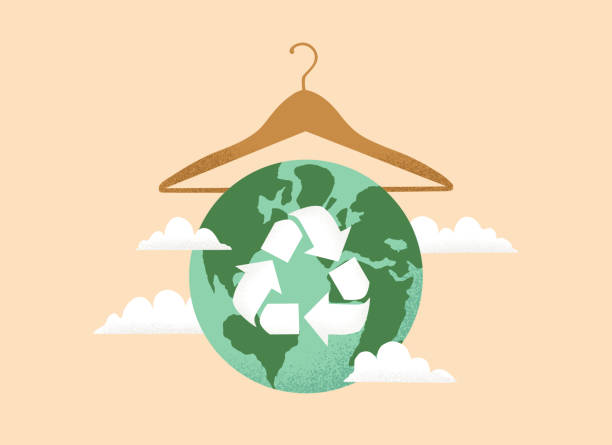Fashioning Change Sustainable Way
Fashioning Change Sustainable Way In the ever-evolving realm of fashion, a profound shift is underway—one that transcends the ephemeral trends and delves into the very essence of conscientious living. This paradigm shift is encapsulated by the Fashioning Change Sustainable Way, a transformative movement propelling the industry towards a more ethical and ecologically harmonious future.
The Genesis of Sustainable Fashion
The roots of the Sustainable Fashion Transformation trace back to a growing awareness of the environmental and social impact of conventional fashion practices. Traditional garment production, marked by exploitative labor practices and environmentally detrimental processes, has spurred a collective call for change. This resonant cry for transformation birthed the sustainable fashion movement—a beacon illuminating a path toward a more responsible and compassionate industry.
Embracing an Eco-Friendly Style Revolution
The ethos of the Eco-Friendly Style Revolution lies in dismantling the conventional norms of fast fashion. Fast fashion, characterized by rapid production cycles and disposable garments, has come under scrutiny for its adverse effects on the planet. The revolutionary wave of eco-friendly style seeks to redefine the very fabric of the fashion landscape by championing durability, ethical sourcing, and minimal environmental impact.
In this transformative journey, sustainable fashion enthusiasts champion the use of organic materials, such as organic cotton and bamboo, steering away from resource-intensive fabrics. The shift towards vegan leather and recycled textiles stands as a testament to the industry’s commitment to mitigating its ecological footprint. This commitment, coupled with a meticulous attention to detail, marks a departure from the wasteful practices that have plagued the fashion industry for decades.
Change Through Sustainable Fashion: A Holistic Approach
At the heart of the Change Through Sustainable Fashion movement is a holistic approach that transcends mere material choices. It encompasses the entire life cycle of a garment—from design and production to consumption and disposal. This comprehensive perspective challenges the throwaway culture ingrained in traditional fashion, encouraging consumers to view their wardrobe as an investment rather than a transient indulgence.
Mindful Design and Production
Sustainable fashion heralds a renaissance in design thinking—one that prioritizes longevity and versatility. Designers, cognizant of the impact of their creations, opt for timeless styles that resist the ebb and flow of fleeting trends. The meticulous craftsmanship involved in the creation of each garment reflects a commitment to quality and durability, rendering fast fashion’s ephemeral allure obsolete.
In the realm of production, ethical labor practices take center stage. The Sustainable Fashion Transformation insists on fair wages, safe working conditions, and the abolishment of exploitative practices that have marred the industry. Embracing transparency, sustainable fashion brands invite consumers to peek behind the scenes, fostering a deeper connection between the producer and the end consumer.
Responsible Consumption: A Consumer Revolution
The true measure of change lies in the hands of consumers. The Fashioning Change Sustainable Way calls upon individuals to reassess their relationship with fashion. It encourages a departure from mindless consumption towards a more thoughtful and intentional approach. Consumers, armed with knowledge, are empowered to make informed choices that align with their values.
Wardrobe longevity becomes a symbol of mindful consumption. Investing in high-quality, timeless pieces not only reduces the environmental impact but also cultivates a sense of personal style divorced from the caprices of trend-driven mania. Thrift shopping and clothing swaps gain prominence, further cementing the shift towards a circular fashion economy.
The Intersectionality of Sustainable Fashion
The canvas of sustainable fashion is not confined to ecological concerns alone; it extends its brushstrokes to embrace social justice and inclusivity. The movement recognizes the interconnectedness of environmental and social issues, aiming to foster a more equitable and compassionate industry.
Diversity and Inclusivity
Within the folds of sustainable fashion, the mantra is clear—Fashioning Change Sustainable Way is inseparable from embracing diversity. The movement celebrates the myriad expressions of beauty and style, debunking the narrow standards perpetuated by mainstream fashion. Inclusivity becomes not just a buzzword but a cornerstone, with brands actively promoting diverse representation in their campaigns and runway shows.
Localism and Global Impact
The ripples of the sustainable fashion movement extend far beyond individual choices. The emphasis on supporting local artisans and manufacturers heralds a return to craftsmanship and a departure from exploitative global supply chains. By championing localism, sustainable fashion becomes a vehicle for economic empowerment, breathing life into communities often marginalized by the conventional fashion juggernaut.
The Tapestry Unfurls: Future Horizons
Technological Alchemy: Innovations Shaping Tomorrow’s Fashion
As we gaze into the horizon of sustainable fashion, we discern the contours of technological alchemy reshaping the industry. Innovations such as 3D printing, biofabrication, and blockchain are poised to become the warp and weft of a future where sustainability is not a choice but an imperative.
3D-printed garments, crafted with precision and minimal waste, herald a new era of customization. Biofabrication, leveraging the potential of microbial cellulose and mycelium, opens avenues for sustainable textiles that defy the conventional boundaries of materiality. Blockchain, with its immutable ledger, becomes a tool for transparency, assuring consumers of the provenance and ethical journey of their garments.
Education as a Catalyst for Change
The journey toward Fashioning Change Sustainable Way is also a voyage of education. As awareness burgeons, educational initiatives become linchpins in cultivating a generation of consumers and creators with a heightened consciousness. Sustainability courses in design schools, workshops on ethical production practices, and initiatives fostering dialogue between industry stakeholders and environmental experts become pivotal in nurturing a mindset that sees fashion as a conduit for positive change.
Challenges on the Road to Sustainability
While the strides made by the sustainable fashion movement are commendable, challenges loom on the horizon. The high initial costs associated with sustainable materials, coupled with the need for widespread consumer education, pose significant hurdles. Nevertheless, these challenges are not insurmountable, and as the movement gains momentum, the industry’s landscape is gradually shifting.
Result: Fashioning Change Sustainable Way
In the symphony of change orchestrated by sustainable fashion, each note plays a crucial role. The Change Through Sustainable Fashion is not a mere trend but a conscious and collective decision to weave a more sustainable narrative into the fabric of our lives. As consumers, designers, and advocates of change, we hold the power to influence the course of this transformative journey.
Let us embrace the spirit of Fashioning Change Sustainable Way, infusing our choices with intention and our wardrobes with purpose. In this evolving narrative, sustainability is not just a style—it is a revolution, a statement, and a commitment to a better, more harmonious world.







